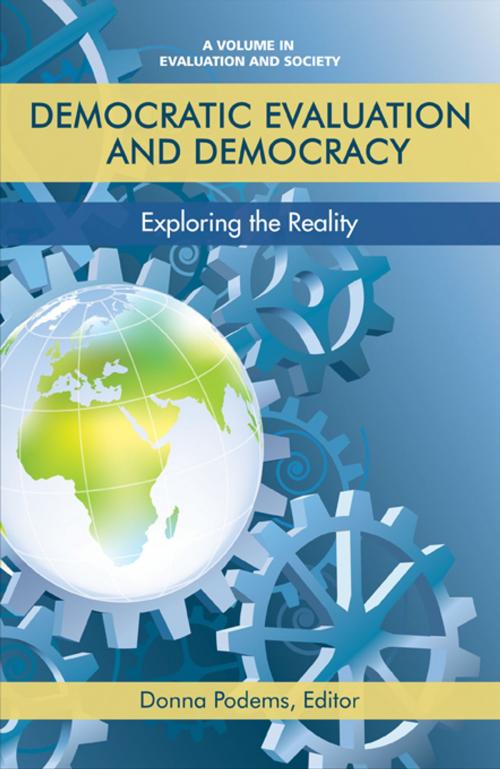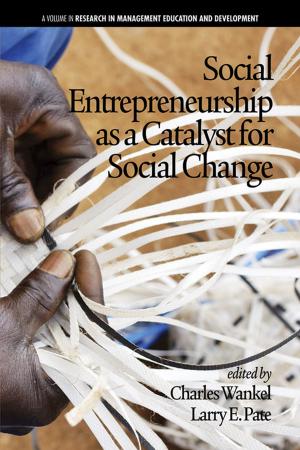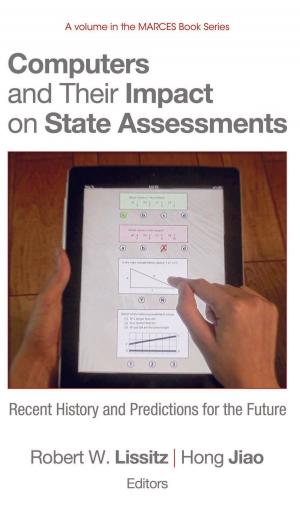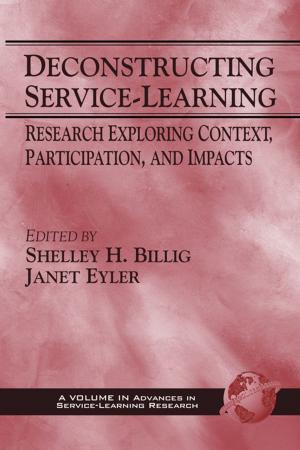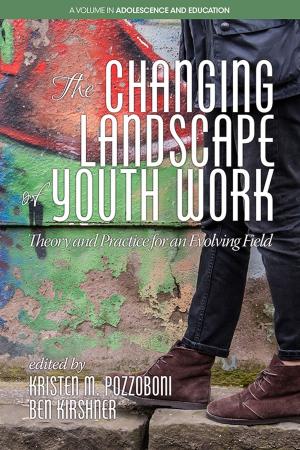Democratic Evaluation and Democracy
Exploring the Reality
Nonfiction, Reference & Language, Education & Teaching, Educational Theory, Evaluation, Teaching, Teaching Methods| Author: | Donna Podems | ISBN: | 9781681237909 |
| Publisher: | Information Age Publishing | Publication: | February 1, 2017 |
| Imprint: | Information Age Publishing | Language: | English |
| Author: | Donna Podems |
| ISBN: | 9781681237909 |
| Publisher: | Information Age Publishing |
| Publication: | February 1, 2017 |
| Imprint: | Information Age Publishing |
| Language: | English |
Democratic evaluation brings a way of thinking about evaluation’s role in society and in particular, its role in strengthening social justice. Yet the reality of applying it, and what happens when it is applied particularly outside the West, is unclear. Set in South Africa, a newly formed democracy in Southern Africa, the book affords an indepth journey that immerses a reader into the realities of evaluation and its relation to democracy. The book starts with the broader introductory chapters that set the scene for more detailed ones which bring thorough insights into national government, local government, and civil societies’ experience of evaluation, democratic evaluation and their understanding of how it contributes to strengthening democracy (or not). A teaching case, the book concludes by providing guiding questions that encourage reflection, discussion and learning that ultimately aims to inform practice and theory.
Democratic evaluation brings a way of thinking about evaluation’s role in society and in particular, its role in strengthening social justice. Yet the reality of applying it, and what happens when it is applied particularly outside the West, is unclear. Set in South Africa, a newly formed democracy in Southern Africa, the book affords an indepth journey that immerses a reader into the realities of evaluation and its relation to democracy. The book starts with the broader introductory chapters that set the scene for more detailed ones which bring thorough insights into national government, local government, and civil societies’ experience of evaluation, democratic evaluation and their understanding of how it contributes to strengthening democracy (or not). A teaching case, the book concludes by providing guiding questions that encourage reflection, discussion and learning that ultimately aims to inform practice and theory.
